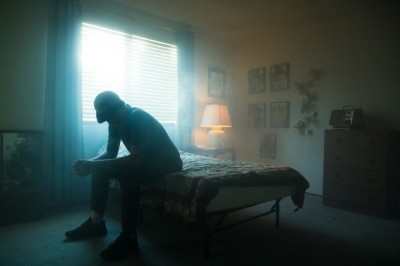The Church needs to be a hospital for childhood wounds, broken people

In a fallen and sinful world, emotional wounds are universal experiences and no one gets out of childhood and into adulthood unscathed. The Church is called to be a hospital for these injuries.
More specifically, the connection between past adverse childhood experiences (ACES), current loneliness, sexual sins, and addiction is multifaceted. While past experiences are not determinative of future feelings or behavior, they often play a complex role in creating an internal milieu or “soil of the heart,” in which negative belief systems and feelings can develop. Out of his, hidden ways of coping take root.
Similar to depression, emotional wounds can’t be seen or diagnosed with the natural eye. There is no obvious disease or bodily injury present, so they are usually ignored by others or downplayed as insignificant. These are sometimes easily brushed aside with dismissive phrases like, “that happened so long ago,” or “why are you still holding on to it?”, or “forgive and forget”.
Additionally, we typically go to great lengths to hide our inner wounds because they often produce intense feelings of self-hatred, insecurity, and an unworthiness to be loved. Convinced that these dark lies about ourselves are true our inner turmoil drives us to find relief — one way or another.
Jesus not only died to remove our personal penalty of sin when we surrender to Him and receive His cleansing and forgiveness on the basis of His finished work on the cross, but He also died for the sins done against us. Rather than appropriating His cleansing power in our lives and helping others to do the same, we lurch toward people and things that provide quick relief and intense emotional or physical experiences.
The issue is that most of these things that fill the void in our hearts are usually temporary and damaging to our souls. The momentary elevation of our mood or the powerful sensation of intimate connection — no matter how fake or devoid of genuine love and intimacy — makes our brain and body lock onto the pleasure chemicals released during the experience and crave them again and again.
Never satisfied, sin lures people deeper and further into unhealthy patterns, then toward addiction — trapping them in a prison of worthless and damaging pursuits. Years of life can be lost chasing these momentary highs while the impact that God created us for is diminished or never realized.
For those who have endured adverse childhood experiences, loneliness can be particularly acute, as they may struggle with trust issues, fear of intimacy, and a deep sense of isolation. According to Dr. John Townsend, author of The Entitlement Cure, loneliness “is often a result of unmet needs and broken relationships. It can lead to a sense of entitlement, which can contribute to addiction and other destructive behaviors.”
Many turn to sexual behaviors as a way to cope with their emotions and to seek connection and validation. This often leads to a pattern of compulsive behavior and addiction, creating a vicious catch-22, further isolating the individual in a cycle of belief, thought, and behavior — all contributing to deepening feelings of guilt, shame, and worthlessness.
I believe that the Church has a role, even a calling, to provide supportive and healing environments.
On any given Sunday morning, our churches are like an emergency room of sick patients in need of healing and care, pretending not to be. Our churches are filled with people who claim to be “fine.” We are meant to be an ER, an OR, or even a MASH unit, on the frontlines of culture, equipped and able to walk with hurting and broken people who don’t even fully realize how much their past is impeding and negatively directing their present.
In his book, Life Together, Deitrich Bonhoeffer writes:
“He who is alone with his sin is utterly alone. It may be that Christians, notwithstanding corporate worship, common prayer, and all their fellowship in service, may still be left to their loneliness. The final breakthrough to fellowship does not occur, because, though they have fellowship with one another as believers and as devout people, they do not have fellowship as the undevout, as sinners. The pious fellowship permits no one to be a sinner. So, everybody must conceal his sin from himself and from the fellowship. We dare not be sinners. Many Christians are unthinkably horrified when a real sinner is suddenly discovered among the righteous. So we remain alone with our sin, living in lies and hypocrisy. The fact is that we are sinners!”
The Church not only needs to return to a hospital model but also a teaching hospital model. It’s not adequate that we have a few paid staff to do all the work or even a relatively few volunteers taking on the majority of the load of ministry. We need vibrant teaching hospitals where people are being healed, maturing in their faith and emotions, and being equipped to become part of a growing team of spiritual doctors and nurses.
It is essential to recognize how trauma can affect an individual's emotional, relational, and spiritual well-being, and to provide a supportive and healing environment for those who are struggling. Many people around us whom we wrongly assume we know well, are also struggling with unhealed areas of wounding, but have learned to cover up the pain and hide their unhealthy methods of coping (maybe that’s you).
Only when we understand the connection between these issues and by providing a loving and accepting community, will the Church be able to help individuals find genuine hope, healing, and restoration.
Garry Ingraham is the founder and executive director of Love & Truth Network. LTN is a national non-profit ministry established in 2013 to equip pastors, leaders, and local churches to effectively minister in restoring sexual and relational wholeness, as well as biblical identity. Garry and his wife, Melissa, both came out of the LGBTQ world to follow Jesus.




















